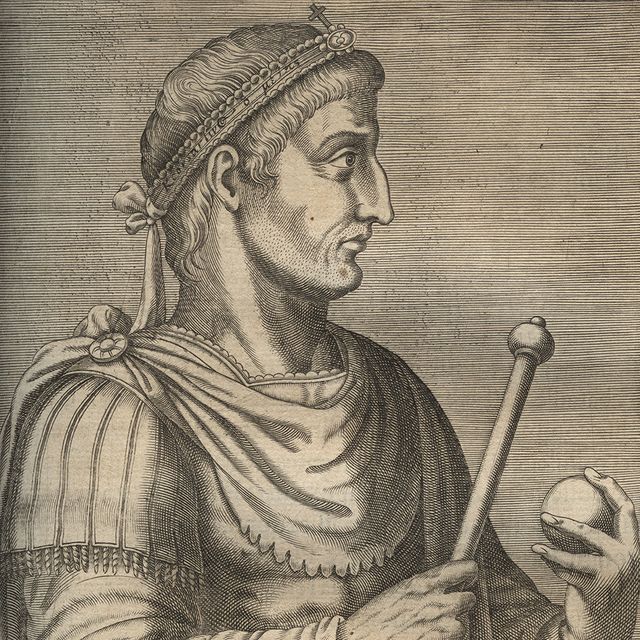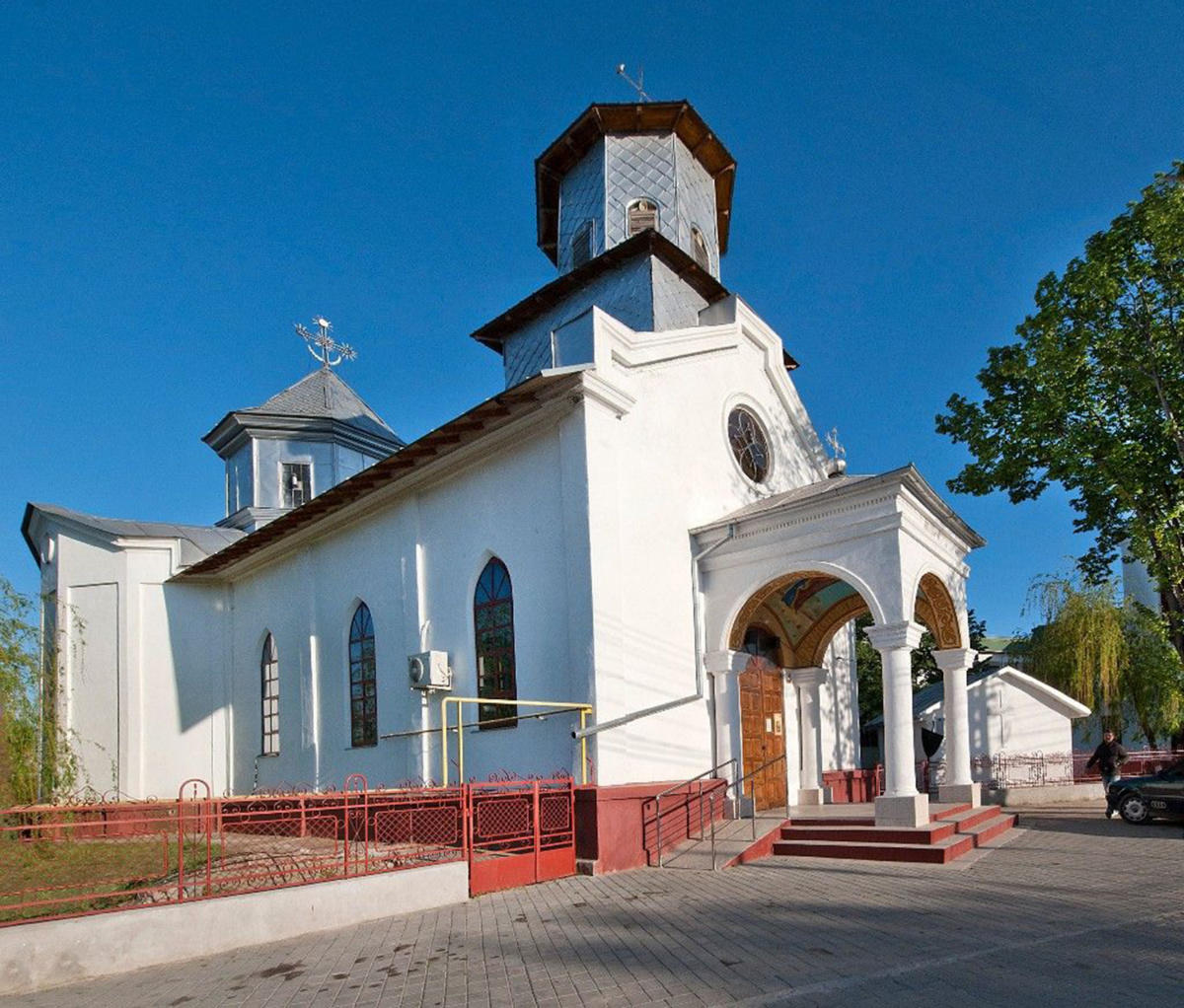 Constantine the Great, the 1st Roman emperor who converted to Christianity, 312 A.D. (“”In hoc signo vinces”)
Constantine the Great, the 1st Roman emperor who converted to Christianity, 312 A.D. (“”In hoc signo vinces”)
“Nihil sine Deo”
-
Tutoring in Latin (language and culture) is available only for K-12 students. The teacher completed a Latin course at the University of Bucharest in the Romanian/Philology program (Romanian is the Latin-based language that maintains the Latin grammatical structures to the largest extent).
“Docendo disco, scribendo cogito.”
___________________________________________________________________________________________________________
Teacher’s message
Faith has always played a central role in my life. In Europe, even in the smallest old towns or villages, one grows up in the shadow of ancient churches, mysterious monasteries, and venerable cathedrals; and, thus, a sense of sacredness is imbued into one’s heart early on, in childhood, even if it sometimes becomes manifest and starts pulsing only later during the adult years. I was baptised Greek-Orthodox Christian at the Church of Saints Constantine and Helen to which my grandparents had belonged since the foundation of the town in the1880s, in Romania (a time when, by kingly decree, only self-declared Christian-Orthodox citizens were allowed to keep their properties). I was raised by deeply conservative family members who in the 1970s defied the risks of teaching religion to children as decreed by the communists; my grandparents taught me prayers and Biblical tales as soon as I opened my eyes to daylight — and guided me toward literature that subtly praised God while remaining undetected on school library shelves; my family took me to church where the old priests still kept the rites as did most of the old town’s people, in fact, including our school’s seasoned teachers (while on the surface everybody appeared to obey the official policies meant to punish any believers). Twenty years ago, in an intellectually-open U.S. environment, I reconnected emotionally to my now passed-away or far-away family through the introspections found in religious books: during a period of family ancestry search, I went beyond the Christian Bible and became interested in Biblical Judaism — the once-forgotten faith of my father’s Romaniote side — and found unexpected insights into our own past so far away from home, here in the United States. Thus, my religious (non-political) Jewish education began and lasted between 2004 -2008, and was completed in 2 years, 2006-2008, at the Adas Israel Conservative Synagogue in Washington D.C. under the supervision of strongly-traditionalist leaders (Rabbi Miller and Rabbi Wohlberg), authors of extraordinary books and sermons. Moreover, I pursued Jewish studies at the oldest Sephardic synagogue in New York, under the supervision of the Orthodox rabbis Marc and Hayyim Angel whose renown books further guided me on the path of knowledge; I also frequented the sole Greek/Romaniote synagogue in the U.S.A. in New York City where I found flavors of the Levantine atmosphere of my grandfather’s household. Since then, I have continued to research Orthodox Christian (and other Christian sources), too, from a personal desire for deeper moral knowledge that I have felt privileged to share with my students in Texas. When I tutor students in Bible texts, I base all my information exclusively on classical authors, my Christian Orthodox knowledge and Jewish Bible exegeses that the Western students versed in the New and Old Testaments may not know, thus we’ve often learned from each other. Though I’m primarily a tutor of European languages and cultures, I have helped Christian college students here in Texas to complete assignments on Biblical topics, too. I view the mainstream culture of the United States as uniquely pro-Biblical standing out in a generally atheistic, decadent Western world; the U.S. cultural environment differs a lot from European cultures because it has allowed the merging of the Christian and the Jewish traditions promoting their common root for a strengthening of Abrahamic spirituality among all the believers in God’s laws.
I remain a learner myself, and, with the knowledge of religions that I have acquired over the past 20 years, I look forward to supporting my students in their Bible comprehension to the best of my humble abilities. I have also helped students interested in art to paint small icon-style paintings; and I have written an English poetry book entitled “Poems for the Light of God” from which I have posted a few poems on this website before attempting to publish it. Far from my family, whose few members chose to stay in Romania or have been lost, I found a spiritual family among the U.S. believers in the Heavenly Father.
famous Arges Monastery, Romania, built in 1517
 St. Constantin and Helen Church, Calarasi, Romania, built in 1860
St. Constantin and Helen Church, Calarasi, Romania, built in 1860
 Kehila Kedosha Janina, the last Romaniote Synagogue in the Western Hemisphere, built in 1927, New York City
Kehila Kedosha Janina, the last Romaniote Synagogue in the Western Hemisphere, built in 1927, New York City
______________________________________________________________________________________________
STUDENTS TALENTED IN HUMANITIES (“G&T” programs)
Parents will work with the teacher to design competitive curricula. Note that a child’s talents for Humanities are usually these:
- early reading and writing, linguistic talent and interest in ethical tales
- fascination with cinema/theatre and manifesting innate rhetorical skills
- interest in arts e.g. listening to and creating poems and/or stories; story-telling, desire and ability to practice drawing/painting; music, dance
- history and geography
- emotional intelligence, empathy for people, literary characters, animals, nature
- creativity (artistic crafts)
- desire for knowledge and above-average focus on most educational subjects
Consider a bilingual curriculum
English-Italian. Curricula can be built around the authentic (Italian) MONTESSORI method and may cover Italian language and art training.
English – French Curricula that are geared towards bilingual French-English instruction rely on French educational guidelines, language, and art.
~~~
“If education is always to be conceived along the same antiquated lines of a mere transmission of knowledge, there is little to be hoped from it in the bettering of man’s future. For what is the use of transmitting knowledge if the individual’s total development lags behind? (…) We especially need imagination in science. It is not all mathematics, nor all logic, but it is somewhat beauty and poetry.” (Maria Montessori, La Mente del Bambino, Mente Assorbente published by Garzanti, 1952)
~~~
Suggested subjects:
Classical novels and tales: UK, U.S., France, Italy, etc
World legends
Character Building: Fables
Grammatical Analysis
Vocabulary and Rhetorics
Esthetics
Symbolism Study
Conversational Skills
International Studies (history)
Reading Comprehension
Literary Criticism
Human Geography
French and/or Italian
Art Theory and Art Practice: Drawing, Painting, Poetry, Fiction
~~~
“By a pleasant custom dating back to the last century, a noted brain-surgeon who plays the violin, can sail a boat, and keeps up with new books is known among his friends as a Renaissance man. He deserves credit, of course, for battling against the force of SPECIALISM, but his qualifications for the honorific title fall a little short when he is compared with, say, Alberti, who not only painted and built and theorized, but was also a poet and playwright, a musician (organist) and a writer on theology and philosophy. Actually, the true Renaissance man should not be defined by genius, which is rare, or even by the numerous performing talents of an Alberti. It is best defined by a variety of interests and their cultivation as a proficient amateur. A Renaissance man or woman has the skill to fashion verses and accompany or sing them, a taste for good letters and good paintings, for Roman antiquities and the new architecture; and some familiarity with the rival philosophies. To all this must be added the latest refinements in manners as practiced in the princely courts, where men and women were expected to talk agreeably, to dance gracefully, to act in masques, and improvise other at home theatricals. Social life for them was a species of serious work for mutual pleasure, one motive being to fend off boredom. The men must be soldiers, both sexes could be adept at politics. In short, it is the exact opposite of our intellectual and social specialisms, the reverse of our prefabricated hobbies and entertainments.” (Jacques Barzun, “From Dawn to Decadence: 500 Years of Western Cultural Life”, 2000)

